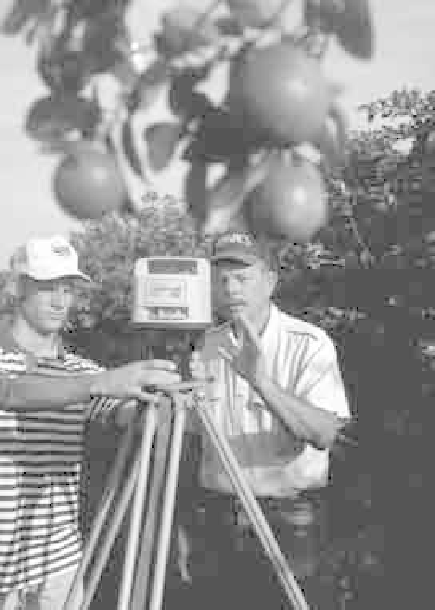Agriculture Reference
In-Depth Information
Plate 17.3
Man and young man using equipment
Formal training can be very effective for new employees or employees changing jobs. Photo
courtesy of USDA Natural Resources Conservation Service.
Too often managers assume that everyone wants to be promoted, when, in fact, some
employees may lack the confi dence or desire needed to handle this step, at least at this point
in their career. In these situations, perhaps there are other ways of recognizing and rewarding
a particular employee besides promotion. Offering added responsibility and pay, without
increased stature in the organizational hierarchy, may be a better option in some cases. Other
employees may be quite comfortable in their current job, and will make their greatest contri-
bution to the company if they are simply left alone.
Agribusiness managers must continually guard against the greatest error made in
promotions. Simply because a person excels at one job is no guarantee that the same
person will excel at a job involving more responsibility and decision making. For example,
a good plant employee may not be a good truck driver, nor will a good salesperson necessar-
ily make a good sales manager. To reiterate: the job and the person must be matched
carefully!
Termination and dismissal
It is inevitable that each employee will eventually leave the fi rm for some reason. Some will
quit, some will be fi red, and some will retire. In every case, the agribusiness manager should

